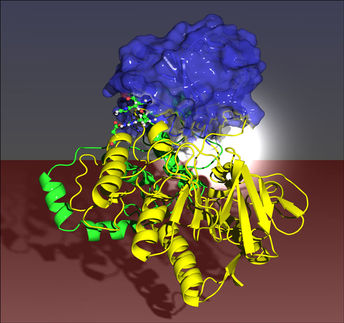Environmental triggers may promote human genetic variation
Scientists show that oxidized nucleobases in human DNA are associated with "hotspots" of genetic recombination and polymorphism
Advertisement
Scientists from Kyushu University report in "Genome Research" how environmentally damaged DNA may contribute to human genetic diversity. They describe the co-occurrence of an aberrant nucleobase, called 8-oxoguanine (8-oxoG), with genomic regions enriched in meiotic recombination "hotspots" and single nucleotide polymorphisms (SNPs). The findings have implications for understanding the interplay between heredity and the environment in shaping human phenotypic variation.
Human DNA is constantly barraged by a variety of environmental agents, including UV light and chemicals, as well as by reactive oxygen species (ROS), which are produced as byproducts of normal metabolic reactions or as molecular executors of host defense. These agents may cause the nucleobases in DNA to spontaneously undergo a chemical transformation known as oxidation. 8-oxoG is an oxidized form of the common nucleobase guanine (G), and when present in the genome, may form an unconventional base-pair with adenine (A). When DNA replication occurs, the abnormally placed adenine is paired with a thymine (T) instead of the original guanine, thereby resulting in a permanent nucleobase change.
One might intuitively expect the distribution of aberrant 8-oxoG nucleobases to be randomly distributed throughout the genome, but in their new study, Dr. Yusaku Nakabeppu and his colleagues demonstrated otherwise. Nakabeppu teamed up with Drs. Mizuki Ohno and Tomofumi Miura, among others, to investigate the distribution of 8-oxoG on spreads of normal human chromosomes with fluorescently labeled antibodies that specifically attached to 8-oxoG positions. Intriguingly, the dot-like fluorescent signals did not cover the chromosomes uniformly but rather, exhibited a striking bias for chromosomal regions that contain higher meiotic recombination rates and SNP densities. Furthermore, the distribution and intensity of 8-oxoG was remarkably similar in different individuals.
"We suggest that 8-oxoG accumulation in a particular region of a chromosome causes meiotic recombination," says Nakabeppu. "Our theory is supported by studies showing that enzymes involved in the repair of oxidative DNA damage can also induce homologous recombination. These enzymes are highly expressed in the ovary and testis, where meiotic recombination normally occurs. Furthermore, meiotic recombination rates in females are significantly higher than in males, probably because oocytes are exposed to oxidative stress for longer periods of time than are spermatocytes."
The uneven distribution of SNPs across the human genome has been documented for some time, but the causes of these nucleobase substitutions and the factors determining their distribution are largely unknown. Nakabeppu, therefore, also suggests that 8-oxoG, due to its mutagenic potential, may contribute to the formation of SNPs.
"The factors determining the distribution of 8-oxoG are still unknown," explains Nakabeppu. "One can certainly argue that there must be another factor that coincidentally increases the recombination rate or the formation of SNPs in addition to the accumulation of 8-oxoG in a particular region of the chromosome. The local structures of chromosomes and their replication or transcription might help to determine the distribution of 8-oxoG, but further analysis is required to fully understand the mechanistic relationship between 8-oxoG, recombination, and mutagenesis."
Other news from the department science
Most read news
More news from our other portals
See the theme worlds for related content
Topic world Antibodies
Antibodies are specialized molecules of our immune system that can specifically recognize and neutralize pathogens or foreign substances. Antibody research in biotech and pharma has recognized this natural defense potential and is working intensively to make it therapeutically useful. From monoclonal antibodies used against cancer or autoimmune diseases to antibody-drug conjugates that specifically transport drugs to disease cells - the possibilities are enormous

Topic world Antibodies
Antibodies are specialized molecules of our immune system that can specifically recognize and neutralize pathogens or foreign substances. Antibody research in biotech and pharma has recognized this natural defense potential and is working intensively to make it therapeutically useful. From monoclonal antibodies used against cancer or autoimmune diseases to antibody-drug conjugates that specifically transport drugs to disease cells - the possibilities are enormous






















































